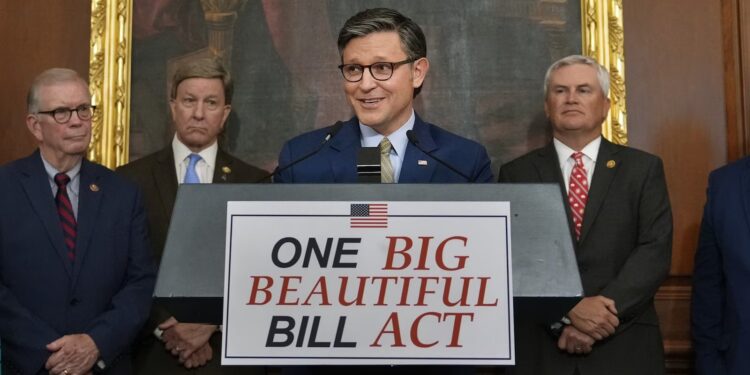A sweeping tax bill, dubbed the “One Big, Beautiful Bill Act” by President Donald Trump, has passed the U.S. House of Representatives, raising alarms among experts who predict it will cost 830,000 jobs, inflate household energy bills, and unleash millions of tonnes of planet-heating pollution. Approved on 22 May 2025, the legislation dismantles key clean energy incentives from the Biden administration’s Inflation Reduction Act (IRA), prioritising tax cuts for the wealthy while slashing programmes that have fuelled a boom in renewable energy and job creation. Critics warn this move threatens both economic stability and environmental progress at a critical time.
The bill eliminates tax credits for electric vehicles, energy-efficient appliances, and rooftop solar by the end of 2025, while phasing out incentives for wind, solar, and clean energy manufacturing by 2032. According to Energy Innovation, these changes could lead to the loss of 830,000 jobs by 2030, primarily in construction and manufacturing sectors like solar panel production and electric vehicle assembly. The Solar Energy Industries Association estimates 300,000 jobs in solar and energy storage alone could vanish by 2028. These losses hit hardest in Republican-led states like Georgia and Texas, where IRA-funded projects have created thousands of well-paying jobs for workers without university degrees. Ted Fertik of the BlueGreen Alliance called the repeal “a direct attack on working Americans,” arguing it undermines economic gains in underserved communities.
Beyond jobs, the bill is set to drive up household energy costs. Energy Innovation projects a 50% increase in wholesale electricity prices by 2035, as cheaper renewable sources like solar and wind are sidelined in favour of costlier fossil fuels. This shift could raise household bills by up to 20% in some states, hitting low-income families hardest. The bill’s environmental toll is equally dire, with an estimated 260 million additional tonnes of greenhouse gas emissions by 2035—equivalent to Spain’s annual output. While U.S. emissions may still decline overall, experts warn the slower pace will fail to avert worsening climate impacts like heatwaves, floods, and droughts.
The legislation aligns with Trump’s broader agenda to prioritise fossil fuels, evidenced by his executive orders boosting oil and gas drilling and halting wind project permits. Combined with the administration’s rollback of 31 environmental regulations, including limits on car and power plant emissions, the tax bill could result in up to 730 million extra tonnes of pollution over the next decade, according to Rhodium Group. Labour unions, including North America’s Building Trades Unions, have condemned the bill, arguing it sacrifices blue-collar jobs for billionaire tax breaks.
As the bill heads to the Senate, some Republican senators advocate preserving IRA tax credits, citing their economic benefits in conservative districts. However, the push for tax cuts and deregulation remains strong, raising fears that short-term gains for the wealthy will come at the expense of jobs, affordability, and a liveable planet. With the climate crisis intensifying, the tax bill’s passage marks a pivotal moment, testing America’s commitment to a sustainable future.
newshub finance



Recent Comments